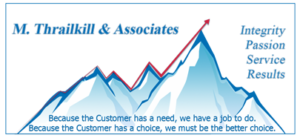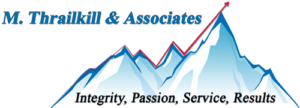Here are some tips to help you prepare.
Research the industry, company and its people.
Know you audience! Spend some time learning everything you can about the company – from a variety of sources. Look beyond the company website and their social media. See what you can find in the news, review industry journals and websites for information about the company, as well as industry trends.
Research the company’s leadership. Look up the company’s leadership page, their LinkedIn profiles, their social media, as well various professional organizations and conferences they attend. Whenever possible get the names and roles of the individuals you will be interviewing with and do the same research on them.
Get a sense of the company’s culture. Start by reading the company’s blog and Facebook to get a sense of the tone of the company’s values. Look on Glassdoor, for example, to see what current and former employees say about the company and its leadership (however, always consider this information carefully as some reviews are made by disgruntled employees).
Anticipate and prepare for the interview questions.
Regardless of how many times you have done this, it’s key to spend time thinking carefully about what skills, accomplishments, and interview answers will resonate with your interviewers most. Your management abilities? Problem solving skills? Communication skills? Your creativity?
Have an answer to “tell me about yourself” ready to go. Interviewers always ask it, and you want to be sure to nail this initial part of the interview. This should not last more than five minutes.
Don’t be thrown off by the classic, “What’s your biggest weakness?” One foolproof method: Think of something that you struggle with but that you are working to improve in and be able to also share what you are doing to improve.
Don’t forget about the numbers! Quantify your accomplishments. Finding some metrics, percentages, increase or decreases you can use when talking about your responsibilities and successes will solidify your strengths and helps you tell a hiring manager why you are right for the job.
Be prepared to tell the interviewer why you want that job – including what interests you about it and the employer, how your skill sets can benefit their company, and what rewards it offers that you find valuable. If an interviewer does not think you are really interested in the job, he or she will not give you an offer – no matter how good you are!
Anticipate possible concerns and reservations.
There are always more candidates for positions than there are opportunities available so interviewers are looking for ways to screen people out. Put yourself in their shoes and ask yourself why they might not want to hire you. Then prepare your defense: “I know you may be thinking that I might not be the best fit for this position because [their reservation]. But you should know that [reason the interviewer shouldn’t be overly concerned].”
Prepare questions for the interviewer.
Come to the interview with some thoughtful questions for the interviewer that demonstrate your knowledge of the company as well as your interest. Interviewers always ask if you have any questions, and no matter what, you should have one or two ready. If you say, “No, not really,” they may conclude that you are not all that interested in the job or the company. A few good all-purpose questions to prepare for are:
• How is success defined in this role?
• What do you like most/least about working here?
• What key items drive results for the company?
Always end the interview by asking what the next steps are, so you can walk away knowing what to expect and thank them for their time.
Practice, practice, practice.
Don’t just think about how you will answer certain questions – practice looking in the mirror and answering the questions out loud. This prep work will help you clarify your thoughts and make you much more comfortable during the interview.
Ask a friend to help you with mock interviews. Think of it as practice making perfect: If you go through the motions and rehearse the kinds of questions you may be asked, you’re more likely to be relaxed and perform better when it’s time for the real thing.
Dress (& Prepare) Accordingly
Plan your interview outfit. For companies that have a business or business casual dress code, keep your look basic and conservative for the first interview. Make sure your clothing is cleaned, pressed, and tailored (a modern fit is best).
Do not forget about the little things: Shine your shoes, check for loose hems, and make sure your fingernails look manicured. This is the stuff that you don’t always think people notice, but they do!
Print and take three copies of your resume. One for you, one for the interviewer and one for that someone who may also attend. You do not always know whom else may be in attendance, and you want to have your resume readily available. Prepare and bring a reference list, whether you think you will be asked for it or not. For each reference, include a name, title, organization, division or department, telephone number, and email address, as well as a sentence briefly explaining the relationship. Ensure accuracy of all information.
Think positive.
No one likes a complainer, so do not dwell on negative experiences during an interview. Find a way to answer the question in a positive way. Even if the interviewer asks you point blank, “What did you like least about that previous job?”, resist the temptation to vent. Speaking negatively of your current employer ends up reflecting poorly on you, not the company.
A great way to answer this question is to talk about a responsibility or duty you would get to have at your new job that your current role does not offer. For example, if the job you’re interviewing for requires that you deliver presentations to large groups, you could share that you wish your current/previous job gave you the opportunity to flex the public speaking skills you’ve honed at your local Toastmasters club.
Alternatively, you can speak about a responsibility at your current job that simply isn’t challenging you any longer because you’ve mastered it. Just make sure that whatever it is, it isn’t a duty that’s integral to the job you’re interviewing for!
Make an impression in the first five minutes.
Some studies indicate that interviewers make up their minds about candidates in the first five minutes of the interview – and then spend the rest of the interview looking for things to confirm that decision. So what can you do in those five minutes to get through the gate? Come in with energy and enthusiasm, and express your appreciation for the interviewer’s time.
Remember your right body language.
Give a firm handshake, have good posture, make eye contact, speak clearly. Be aware of what you are communicating through your posture and stance – and make sure it is good (sitting with you arms and legs crossed sends a message that you are closed off or feel defensive). Think your movements through ahead of time so you are not distracted during the interview.
Send thank-you notes.
Write a thank-you note after every interview. Type each note on paper or send them by email, depending on the interviewers’ preferences. Customize your notes by referring specifically to what you and the interviewer discussed; for example, “I was particularly interested by what you said about …” Be sure to reiterate a couple of skills or experiences that you brought to the table that stood out to the interviewer. Notes should be sent within 48 hours of the interview.
If you follow the above strategies, you’ll be as well prepared as any candidate an interviewer has ever seen.


